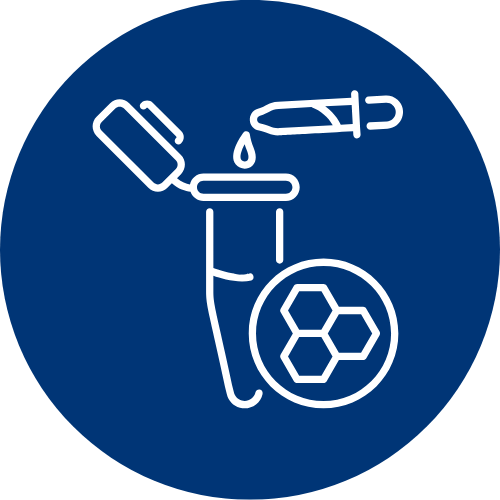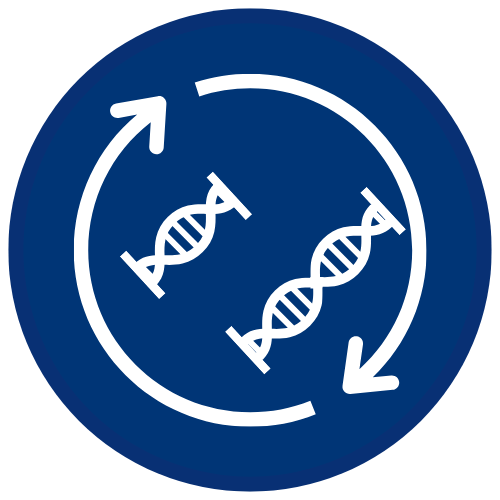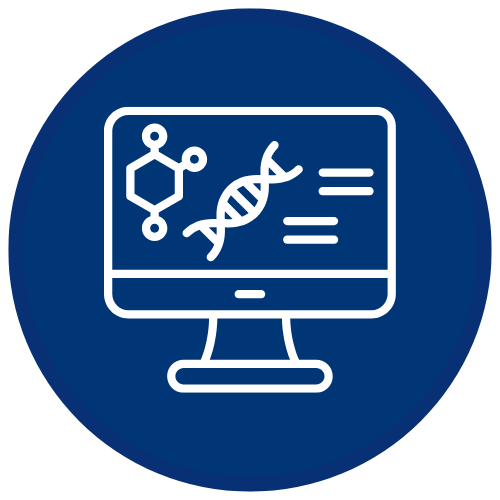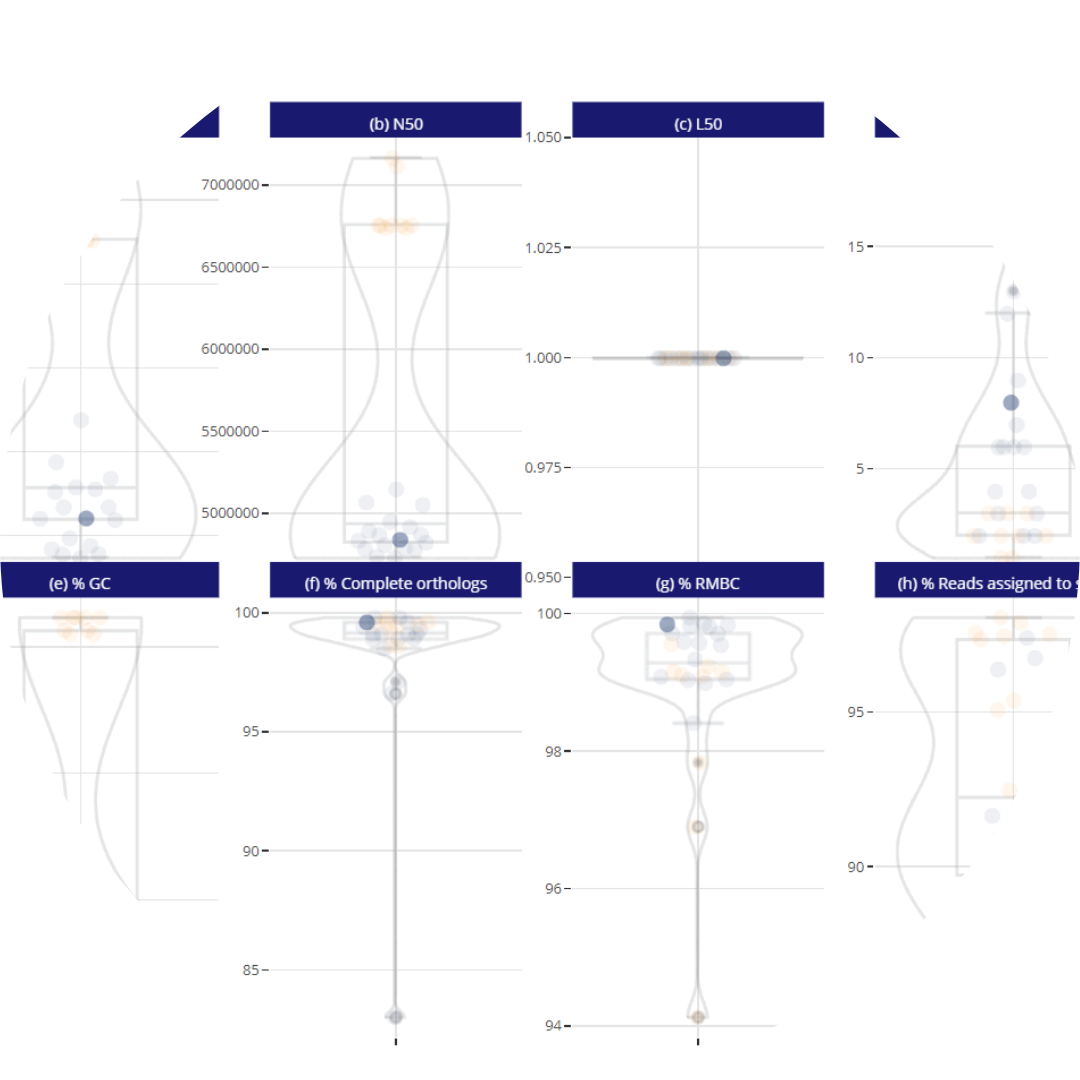GenoScreen supports you in developing and optimizing your custom qPCR tests. Our team designs specific assays tailored to your need, whether for detecting genetically modified strains, differentiating species at the desired taxonomic level (strain, species, genus), or analyzing genes of interest (enzymatic function, RT-qPCR, etc.).
Advanced expertise in custom qPCR
In silico design, in vitro validation, and optimization of experimental conditions.
Improved sensitivity, efficiency, and robustness.
Support for implementing the method on your own platforms.
Determination of LOD (limit of detection) and LOQ (limit of quantification), testing on complex matrices.
Our workflow applied to qPCR: iQuant offer

Primer
design
(In silico)
Specificity testing
Primer
verification
(In silico)
If primers are provided

qPCR test development and optimization

Result analysis
Quantification or detection

Interpretation and reporting

Method transfer or delivery as a ready-to-use kit

Extraction ADN optimisée pour chaque matrice
selles, sols, peau, fermentés, etc.

Préparation des librairies
avec contrôles qualités intégrés

Séquençage haut-débit adapté

Analyse bioinformatique

Interprétation & Restitution

Primer
design
(in silico)
Specificity testing
Primer
verification
(in silico)
If primers are provided

qPCR test development and optimization

Result analysis
Quantification or detection

Interpretation and reporting

Method transfer or delivery as a ready-to-use kit

Adjustment of experimental conditions (temperature, concentrations, cycles)
Determination of LoD and LoQ
Inhibitor screening related to the analyzed matrix
Validation on real samples to ensure robustness and reproducibility

Clearly annotated report from our experts, including explanation of results and limitations
Optional oral presentation to ensure full understanding of outcomes

We assist you in transferring the developed test onto your own qPCR platforms.
We also offer custom "ready-to-use" kit formulation for use in your labs or by your project partners.
Why choose GenoScreen?

Scientific and regulatory expertise
With a rigorous and transparent approach, we develop qPCR methods compliant with EFSA standards, particularly for residual DNA and GMM detection in finished products. Each step is validated under high-quality standards. Our methods are designed in compliance with ISO 9001 and can be adapted to GCLP and GMP requirements.
Accurate and actionable results
We provide complete reporting formats, including absolute or relative quantification and analytical validation according to your needs. Each project comes with detailed reports outlining development and optimization steps. We ensure regular interactions throughout the project with Go/No-Go decision checkpoints to guarantee optimal quality control and full transparency.

Flexibility and personalized support
We design custom primers and probes (MGB, TaqMan, etc.) to ensure performance and specificity. Our client support is tailored, with regular communication, fast troubleshooting, and close monitoring at every stage. Our solutions are compatible with a wide variety of sample types: powders, liquids, environmental, or biological matrices.
Responsive and efficient service
Experience fast turnaround times (6 to 8 weeks) for qualitative or quantitative analyses, fully tailored to your needs. Receive personalized support with a dedicated contact for smooth follow-up from design to results interpretation.
Our custom qPCR services are applicable across multiple sectors:

Human Health & Microbiota : Quantification of specific strains and gene-of-interest quantification

Agri-food Industry : Detection of residual DNA, validation of manufacturing processes, regulatory dossiers (e.g., EFSA) for genetically modified strains

Biotechnology : Monitoring of microbial cultures, quality control of finished products, rapid diagnostics for recurrent contaminants
Detection of residual DNA from genetically modified production strains in finished products
Detection of residual plasmid DNA after fermentation tank cleaning
Detection of target bacterial strains in environmental samples
Gene quantification under different culture conditions